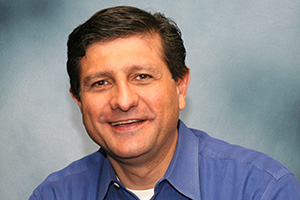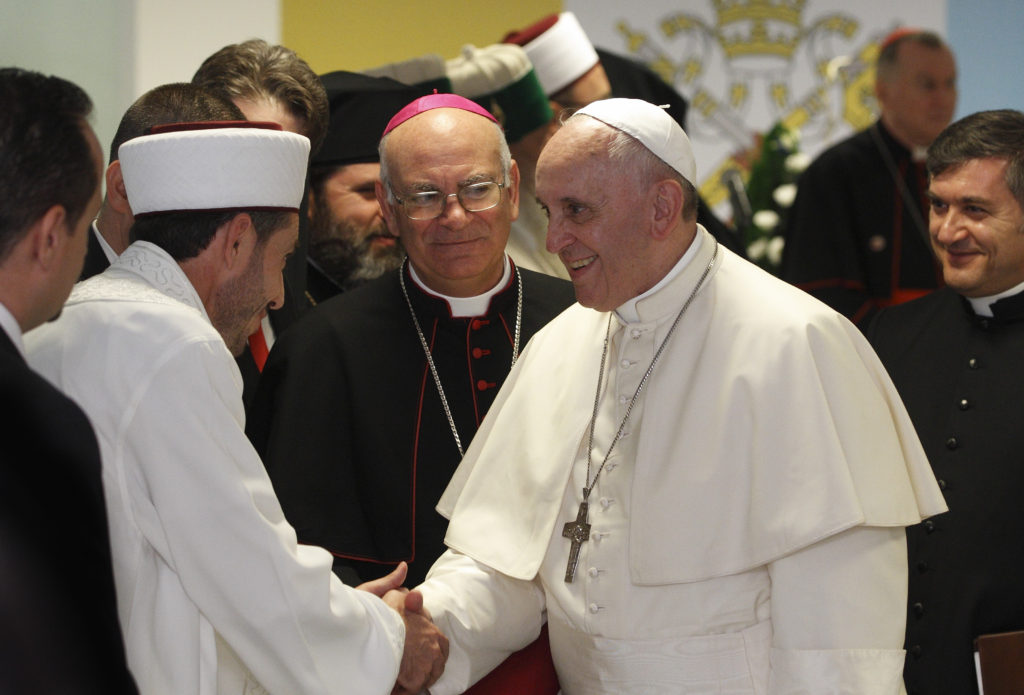[dropcap type=”4″]I[/dropcap]s it our Catholic duty to defend Muslims? The Catholic Church believes it is.
But more importantly, fellowship with Muslims and the whole community of genuine followers of the God of Abraham might help us make the world a better place.

I have been thinking about that a lot recently. A close friend of mine is Muslim and one of the kindest, most humanitarian doctors I know. Besides being helpful to my mother, to me and the rest of my family, he exhibits the highest level of what I would deem Catholic outreach in every other aspect of his life.
But interfaith sentiments are under attack over the last several decades as Muslim extremists have wreaked terror and havoc all over the world — murdering, in their words, in the name of God. The religious fears and animosity ratcheted up most recently when extremists killed 12 in an attack on the offices of the French newspaper Charlie Hebdo, simply for satirizing the prophet Mohammed. Five more were murdered shortly thereafter.
As a journalist I am concerned about my right to speak my mind without being killed for it.
But as I reflected on Pope Francis’ visit to Turkey in December, where he met and stood in solidarity with a Muslim cleric, it occurred to me that these events cannot and must not be viewed by the faithful as a separator, but instead must be seen as a unifier for those who believe in a God that instructs them to love, not to hate.
With the onslaught of Muslim extremists that have swept across the Middle East in recent years, it’s understandable and important that a conversation and debate be had about how to stop such madness. We need to defend our world and our faith from such horrors!
But unfortunately many use this as an opportunity to indict an entire world religion — one that traces its roots to ours. As for the Church’s position on Muslims, it could not be any more clear than when it was stated during the Second Vatican Council: “But the plan of salvation also includes those who acknowledge the Creator, in the first place among whom are the Muslims: these profess to hold the faith of Abraham, and together with us they adore the one, merciful God, mankind’s judge on the last day.”
In a world rife with pagan beliefs, trite deities, and subjective human-based morality, the acknowledgement of the one true God is a valuable position to defend. As the old saying goes, united we stand and divided we fall.

As for me, my relationship with my Muslim friend is not the only experience that makes the question above more than an academic one. I have also been on the other end of religious persecution.
It happens whenever I am speaking to non-believers who indict me for everything and anything that any Catholic has ever done. I once had an employee who refused to respect my authority because she said my religion promoted the abuse and violation of women’s rights.
And a Protestant radio show host once insisted on the air that I was doomed to eternal damnation for following a worldly leader that didn’t answer to God and for worshiping idols and Mary — obvious misconceptions of what our faith teaches.
And what to say of those that lump us together with the likes of Olympic Park Bomber Eric Rudolph, the Christian terrorist responsible for the anti-abortion and anti-gay bombings across the southern United States between 1996 and 1998, which killed two and injured 111 others?
All of this brings me back to a deep heartfelt connection with my Muslim friend. But ultimately it’s not just the affiliation with those that commit heinous crimes and sins against humanity in the name of religion that connects us. More importantly it is the loving God we have in common, who calls us to love our brothers and sisters, as my friend does wholeheartedly every day of his life.
When the battle against evil intensifies, so does our need to come together to fight extremism, to fight hatred, to fight discrimination and intolerance. That is our common goal. And we will only achieve it together, not apart.






